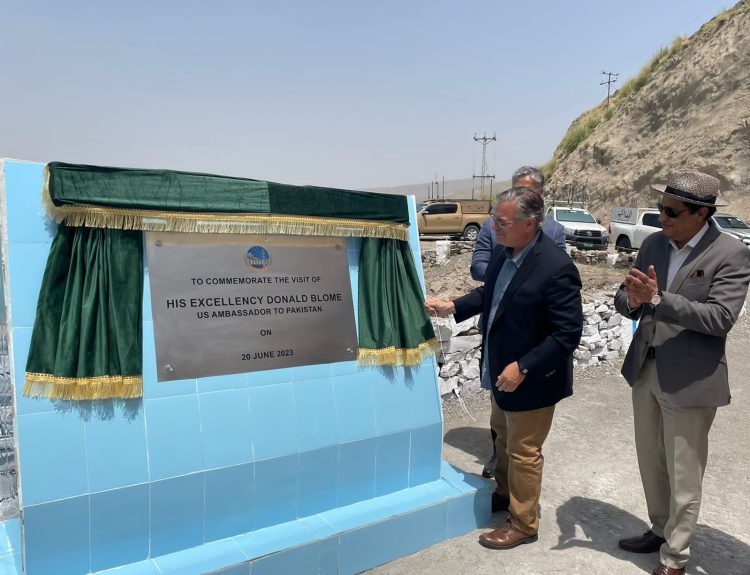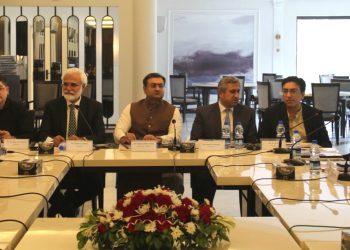PESHAWAR: U.S. Ambassador Donald Blome recently visited the Gomal Zam Dam in the South Waziristan District of the Newly Merged Districts (NMDs) of Khyber Pakhtunkhwa, emphasizing the economic achievements of the bilateral partnership between the United States and Pakistan. Accompanied by high-ranking officials, including Lt. General (retired) Sajjad Ghani of the Water and Power Development Authority (WAPDA) and Muhammad Javed Marwat of the Agriculture Department of Khyber Pakhtunkhwa, the visit aimed to showcase the positive outcomes of the joint project.
The Gomal Zam Dam, a significant piece of infrastructure, is the result of collaboration between the two governments under the U.S.-Pakistan “Green Alliance” framework. The project focuses on advancing water management, clean energy, and climate-smart agriculture initiatives. Notably, the dam has had a transformative impact on the region by doubling agricultural production through the addition of 191,000 acres of land for local farmers. Moreover, it has successfully mitigated flood damage for over 30,000 households, bolstered Pakistan’s national water storage capacity, and provided electricity to 20,000 homes.
Ambassador Blome expressed pride in the $130 million collaboration with the Government of Pakistan for the Gomal Zam Multi-purpose Project. This investment includes the construction of the dam, irrigation infrastructure, and support for the surrounding communities. The Gomal Zam Dam now stands as the third-largest water storage facility in Pakistan, following the U.S.-funded Tarbela and Mangla Dams. It plays a crucial role in Pakistan’s strategy for climate change management and overall food security. Additionally, the dam generates 17 megawatts of hydropower, contributing to a reliable and clean energy source while empowering farmers to improve their socio-economic conditions.
The United States Agency for International Development (USAID) played a pivotal role by investing $130 million in the dam, irrigation infrastructure, and agriculture development components. The Government of Pakistan and the provincial government of Khyber Pakhtunkhwa equally contributed to the project’s cost, highlighting the shared commitment to its success.
The visit of Ambassador Blome to the Gomal Zam Dam serves as a testament to the strong economic accomplishments resulting from the U.S.-Pakistan bilateral partnership. The project’s focus on agriculture, water management, and clean energy aligns with both countries’ goals for sustainable development and showcases the positive impact of their collaboration.


















